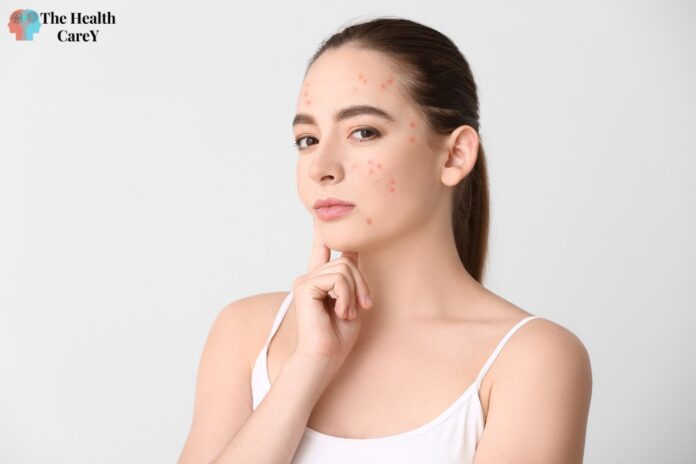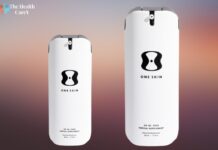If you struggle with acne, you’ve likely tried a variety of treatments to clear up your skin. From topical creams to prescription medications, there are many options available. One ingredient that has gained popularity in recent years is hyaluronic acid. But does hyaluronic acid actually help with acne?
Hyaluronic acid is a natural substance that is found in the body, particularly in the skin. It is known for its ability to retain moisture, which makes it a popular ingredient in skincare products. Some people believe that hyaluronic acid can also help with acne, but the evidence is mixed. While some studies have shown that it may be beneficial, others have found no significant improvement in acne symptoms. So, what’s the truth about hyaluronic acid and acne?
What Is Hyaluronic Acid?
If you are interested in skincare, you have probably heard of hyaluronic acid. It is a popular ingredient in many skincare products, including those that claim to help with acne. But what exactly is hyaluronic acid?
Hyaluronic acid is a substance that is naturally present in our bodies. It is found in our skin, joints, and connective tissues. Its main function is to retain water, which helps to keep our tissues hydrated and lubricated.
In skincare products, hyaluronic acid is used for its hydrating properties. It is a humectant, which means that it can attract and hold onto water molecules. When applied to the skin, it can help to increase hydration levels, which can make the skin look plumper and more radiant.
Hyaluronic acid is also known for its ability to improve the skin’s barrier function. This is important for acne-prone skin, as a compromised skin barrier can lead to increased inflammation and breakouts. By strengthening the skin’s barrier, hyaluronic acid may be able to help prevent acne and reduce its severity.
Overall, hyaluronic acid is a versatile skincare ingredient that can benefit many different skin types, including those with acne-prone skin. However, it is important to note that it is not a miracle cure for acne and should be used as part of a comprehensive skincare routine.
Does Hyaluronic Acid Help Acne?
If you’re dealing with acne-prone skin, you’re probably on the hunt for the best products to help clear your skin. One ingredient that has gained popularity in recent years is hyaluronic acid. But does hyaluronic acid actually help with acne? Let’s take a closer look.
Hydration and Skin Barrier
Hyaluronic acid is a natural substance found in the skin that helps to keep it hydrated. When applied topically, it can help to improve the skin’s moisture levels, which can be beneficial for acne-prone skin. Dehydrated skin can lead to an overproduction of oil, which can clog pores and lead to breakouts. By keeping the skin hydrated, hyaluronic acid can help to prevent this from happening.
In addition to its hydrating properties, hyaluronic acid can also help to strengthen the skin’s barrier function. This is important for acne-prone skin, as a compromised skin barrier can lead to inflammation and irritation. By strengthening the skin’s barrier, hyaluronic acid can help to reduce the risk of acne flare-ups.
Anti-Inflammatory Properties
Another way that hyaluronic acid may be beneficial for acne-prone skin is through its anti-inflammatory properties. Inflammation is a key factor in the development of acne, and reducing inflammation can help to prevent breakouts. Hyaluronic acid has been shown to have anti-inflammatory effects, which may help to calm down inflamed skin and reduce the severity of acne.
While hyaluronic acid may be a helpful ingredient for acne-prone skin, it’s important to note that it is not a cure-all. It’s always best to use a combination of products and treatments to address acne, rather than relying on just one ingredient. Additionally, it’s important to choose products that are appropriate for your skin type and concerns, as using the wrong products can actually make acne worse.
In conclusion, hyaluronic acid can be a helpful ingredient for acne-prone skin due to its hydrating and anti-inflammatory properties. However, it’s important to use it in combination with other products and treatments, and to choose products that are appropriate for your skin type and concerns.
Hyaluronic Acid and Acne Treatment
If you’re dealing with acne-prone skin, you might be wondering whether hyaluronic acid (HA) is a good option for you. Here’s what you need to know about HA and acne treatment.
Effectiveness for Acne-Prone Skin
Hyaluronic acid is a popular skincare ingredient known for its ability to hydrate and plump the skin. While it can be a great addition to your skincare routine, it’s important to note that HA isn’t necessarily a cure for acne.
That being said, HA can help improve the overall health of your skin, which can in turn reduce the severity of your acne. By hydrating the skin, HA can help reduce inflammation and irritation, which are two key factors that contribute to acne.
Complementary Acne Treatments
If you’re dealing with acne, it’s important to take a holistic approach to treatment. While HA can be a helpful addition to your skincare routine, it’s not a one-stop solution.
Some complementary acne treatments that you might want to consider include:
- Salicylic acid: This beta hydroxy acid can help exfoliate the skin and unclog pores, which can reduce the occurrence of acne.
- Benzoyl peroxide: This topical treatment can help kill acne-causing bacteria and reduce inflammation.
- Retinoids: These vitamin A derivatives can help reduce acne by unclogging pores and reducing inflammation.
When using multiple acne treatments, it’s important to be mindful of how they interact with one another. For example, using too many exfoliating products at once can actually make your acne worse. If you’re not sure how to build an effective acne treatment routine, consider consulting with a dermatologist.
Overall, hyaluronic acid can be a helpful addition to your acne treatment routine. While it’s not a cure for acne, it can help improve the overall health of your skin and reduce inflammation. When used in conjunction with other acne treatments, it can be an effective tool in your quest for clear, healthy skin.

How to Use Hyaluronic Acid for Acne
Product Selection
When selecting a hyaluronic acid product for acne-prone skin, it’s important to choose one that is labeled non-comedogenic. This means that the product is formulated to not clog pores, which can exacerbate acne breakouts. Look for a product that also contains other beneficial ingredients for acne-prone skin, such as salicylic acid or benzoyl peroxide.
Application Tips
To effectively use hyaluronic acid for acne, follow these application tips:
- Cleanse your face thoroughly before applying hyaluronic acid. This will ensure that the product can penetrate the skin and work effectively.
- Apply a small amount of hyaluronic acid to your fingertips and gently massage it into your skin. Start with a small amount and gradually increase if needed.
- Wait a few minutes for the hyaluronic acid to fully absorb into your skin before applying any other products.
- Follow up with a moisturizer to lock in the hydration provided by the hyaluronic acid.
- Use hyaluronic acid consistently as part of your daily skincare routine to see the best results.
By following these tips, you can effectively incorporate hyaluronic acid into your skincare routine to help improve acne-prone skin. Remember to always patch test new products and consult with a dermatologist if you have any concerns.
Potential Side Effects of Hyaluronic Acid
While hyaluronic acid is generally considered safe for most people, there are some potential side effects you should be aware of. Here are some of the most common ones:
Skin Irritation
Some people may experience skin irritation after using hyaluronic acid products. This can manifest as redness, itching, or a rash. If you notice any of these symptoms, stop using the product immediately and consult with your dermatologist.
Allergic Reactions
Although rare, some people may be allergic to hyaluronic acid. If you have a history of allergies, it’s important to patch test any new products before using them on your face. Signs of an allergic reaction may include swelling, hives, or difficulty breathing. If you experience any of these symptoms, seek medical attention right away.
Acne Breakouts
While hyaluronic acid is often touted as a cure for acne, it can actually make some people’s acne worse. This is because hyaluronic acid is a humectant, which means it draws moisture from the air into your skin. If you already have oily or acne-prone skin, this extra moisture can lead to clogged pores and breakouts.
Interactions with Other Products
If you’re using other skincare products, it’s important to be aware of how they interact with hyaluronic acid. For example, if you’re using a product that contains benzoyl peroxide, it may oxidize the hyaluronic acid and render it ineffective. Similarly, if you’re using a product with a low pH, it may cancel out the benefits of the hyaluronic acid.
Overall, hyaluronic acid is a safe and effective ingredient for most people. However, it’s important to be aware of the potential side effects and to use it in moderation. If you’re unsure whether hyaluronic acid is right for you, consult with your dermatologist.
Frequently Asked Questions
Can hyaluronic acid improve the appearance of acne scars?
Hyaluronic acid may help improve the appearance of acne scars by promoting hydration and plumping the skin. However, it’s important to note that hyaluronic acid alone may not be sufficient in treating acne scars. It’s best to consult with a dermatologist for a personalized treatment plan.
Is hyaluronic acid beneficial for oily, acne-prone skin?
Yes, hyaluronic acid can be beneficial for oily, acne-prone skin as it helps to hydrate the skin without clogging pores. However, it’s important to use a non-comedogenic hyaluronic acid product and to avoid overusing it as it may cause excess oil production.
Should individuals with acne include hyaluronic acid in their skincare routine?
Individuals with acne can include hyaluronic acid in their skincare routine as it helps to hydrate the skin and improve its overall appearance. However, it’s important to use it in conjunction with other acne-fighting ingredients and to consult with a dermatologist for a personalized treatment plan.
Can hyaluronic acid assist in reducing hyperpigmentation and dark spots?
Hyaluronic acid may help reduce hyperpigmentation and dark spots by promoting skin hydration and improving its overall texture. However, it’s important to use it in conjunction with other hyperpigmentation-fighting ingredients and to consult with a dermatologist for a personalized treatment plan.
Does hyaluronic acid have a role in preventing clogged pores?
Hyaluronic acid does not have a direct role in preventing clogged pores, but it can help to hydrate the skin and improve its overall texture, which may indirectly prevent clogged pores. It’s important to use a non-comedogenic hyaluronic acid product and to avoid overusing it as it may cause excess oil production.
How does hyaluronic acid affect sensitive skin types?
Hyaluronic acid is generally well-tolerated by sensitive skin types as it is a gentle and non-irritating ingredient. However, it’s important to patch test any new products containing hyaluronic acid and to consult with a dermatologist if you have any concerns about using it on your sensitive skin.





















